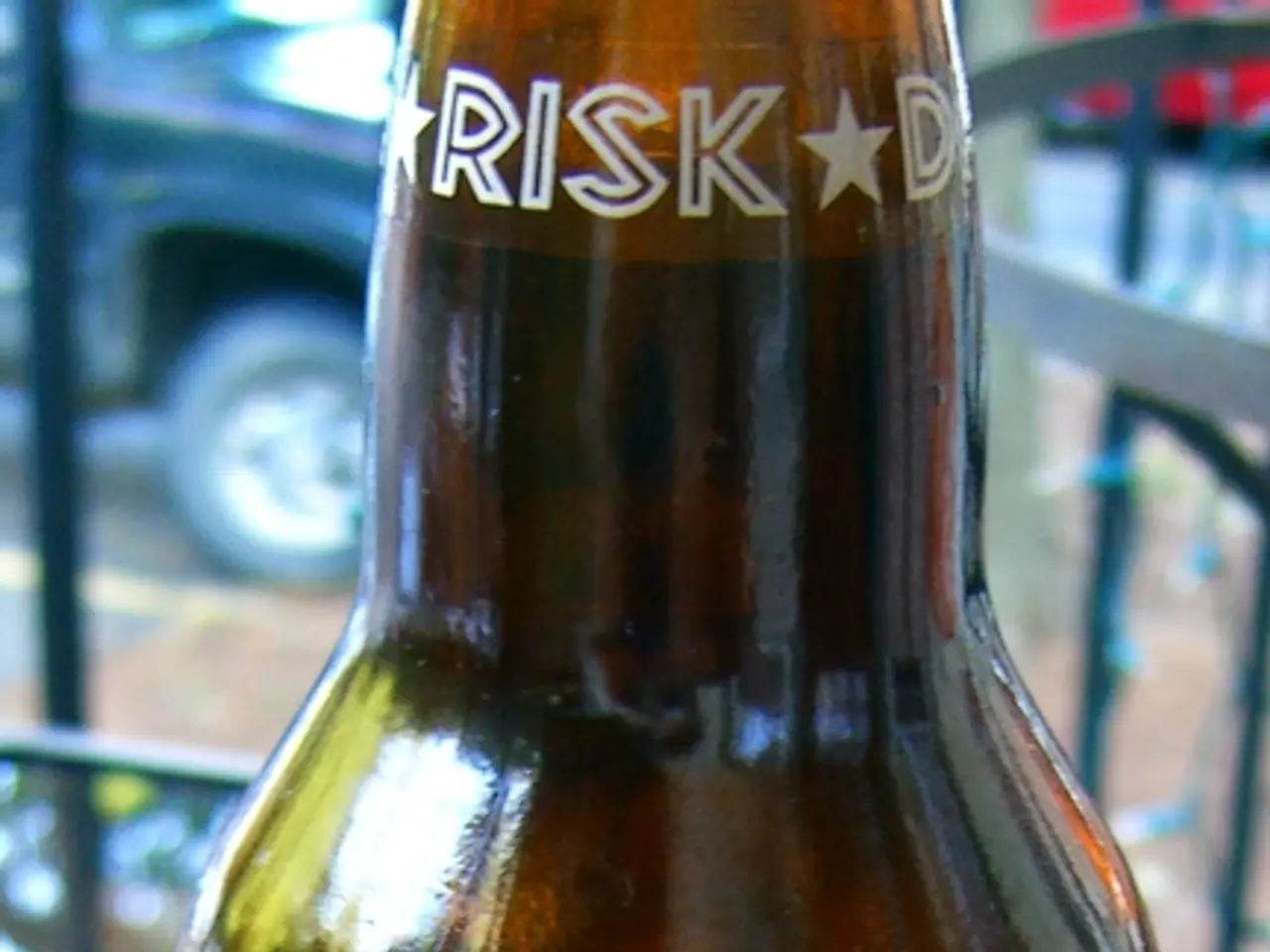Question Regarding the Safety of Acetaminophen Consumption While Drinking Alcohol
When it comes to pain relief and fever reduction, Tylenol (acetaminophen) is a common go-to for many people. However, mixing it with alcohol can have serious consequences for your liver.
Approximately half of acetaminophen overdoses are accidental, and when combining alcohol and Tylenol, the potential side effects can become more severe. It's important to note that Tylenol is an ingredient in over 600 different over-the-counter and prescription medications.
Acetaminophen is metabolized in the liver, and excessive intake can cause liver damage. Alcohol consumption adds stress to the liver and can exacerbate acetaminophen’s toxic effects, even at normal doses or at doses as low as 2 to 4 grams per day of acetaminophen.
The risks of combining alcohol and Tylenol include an increased risk of acute liver failure, potential for permanent liver damage including cirrhosis, inability of the liver to regenerate if damage is excessive, and a greater chance of overdose and poisoning symptoms.
Heavy drinking is defined as imbibing eight or more drinks for women, or 15 or more drinks for men in the course of a week. Chronic, heavy alcohol intake can deplete the liver of its glutathione stores, which are needed to metabolize acetaminophen.
It's crucial to follow dosing instructions carefully when taking Tylenol and to consult your healthcare provider if you have any questions about whether to take Tylenol, or how to do it safely. If you have chronic health conditions, particularly liver disease or alcohol use disorder, it's important to consult your healthcare provider before taking Tylenol.
If you think you're experiencing acute acetaminophen toxicity, it's important to act fast. Signs of acetaminophen toxicity include pain on the upper right side of the abdomen under the ribs, dark, bloody or infrequent urine, skin and eyes appearing yellow (jaundice), abdominal pain and swelling, unusual bruising or bleeding, loss of appetite, confusion, fatigue or loss of consciousness, blurry vision, excessive sweating, and pain on the upper right side of the abdomen under the ribs.
While there is no universally recognized safe limit for consuming alcohol while taking Tylenol, medical professionals generally recommend avoiding alcohol altogether when using acetaminophen. If alcohol consumption occurs, it should be minimal and well below any level that could stress the liver.
Consider alternatives to Tylenol, such as nonsteroidal anti-inflammatory drugs (NSAIDs), if you're concerned about acetaminophen toxicity. Before taking Tylenol, review your medications to see if any already contain acetaminophen.
Dr. Christina Lindenmeyer, a hepatologist, emphasizes the importance of taking Tylenol safely. "It's important to remember that everyone's liver is different, and some people may be more susceptible to the toxic effects of acetaminophen than others," she says. "That's why it's essential to follow dosing instructions carefully, avoid taking Tylenol on an empty stomach, and consult a healthcare provider if you have any concerns about your liver health or the interaction between Tylenol and alcohol."
In conclusion, while Tylenol is a commonly used medication, it's important to be aware of the risks associated with combining it with alcohol. By following dosing instructions carefully, avoiding alcohol when taking Tylenol, and consulting a healthcare provider when necessary, you can help ensure your liver stays healthy and functioning properly.
- Maintaining a healthy lifestyle, including food intake, plays a crucial role in overall health.
- The history of Tylenol (acetaminophen) dates back to the 1800s, bringing relief to millions.
- Apart from Tylenol, health-and-wellness routines often involve fitness-and-exercise and mental-health therapies-and-treatments.
- A balanced diet for health entails proper nutrition, focusing on fruits, vegetables, lean proteins, and whole grains.
- Medicare offers coverage for various health services, including mental health and prescription drugs like Tylenol.
- CBD has gained popularity due to its potential health benefits, particularly in pain management and anxiety reduction.
- Learning about personal-finance and wealth-management is essential in ensuring financial security, a critical component of well-being.
- Cooking skills come in handy for preparing nutritious food at home, such as healthy-cooking recipes found in food-and-drink magazines.
- Exploring global-cuisines broadens our culinary knowledge and understanding of different cultures.
- Car-maintenance is essential for the longevity of a vehicle, promoting safety while commuting or driving electric-vehicles.
- Sports not only boost physical fitness but also contribute to mental well-being.
- Sports-betting has become a multi-billion dollar industry, attracting fans and professionals alike who wager on various sports events.
- Weather plays an important role in our daily lives, influencing our decisions on what to eat, wear, or engage in sports or outdoor activities.




